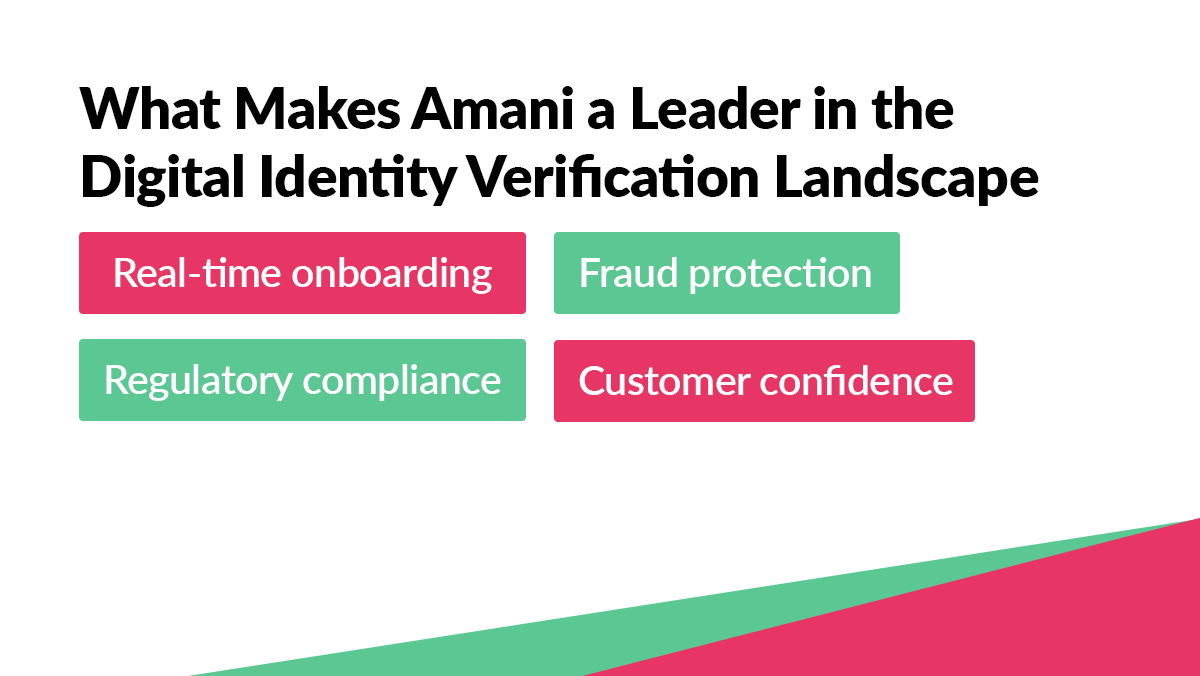Did you know that the global identity and access management (IAM) market is projected to surpass $24 billion by the end of 2025, growing at a steady 13 percent year-on-year? This surge highlights one thing- identity is now at the heart of cybersecurity, compliance and customer experience. But for many companies, managing identity isn’t just about security. It has become a trust factor in a world of AI-driven fraud, regulatory scrutiny and soaring customer expectations.
This blog lets you dive into what Identity Intelligence really means, why it matters in 2025 and beyond and how organisations can put it to work.
What’s New? The Rise of Identity Intelligence
Identity Intelligence refers to the ability to collect, analyse and act on identity data in real time, whether it belongs to a person, device, or AI agent. It combines traditional IAM with behavioral analytics, biometrics and AI-powered risk assessment to provide a 360-degree view of identity.
In 2025, Identity Intelligence has moved from a security add-on to a business necessity. Whether it is detecting deepfake attempts in digital onboarding, authenticating a returning customer without passwords, or managing AI agents in DevOps, Identity Intelligence is becoming central to how organisations operate.

Trends in Digital Identity Verification You Need to Know
Identity security is transforming consistently. Here are some of the latest developments shaping the field of digital identity verification globally:
AI-Driven Fraud and Deepfakes
Generative AI has enabled fraudsters to create synthetic identities, fake documents and even realistic voice and video deepfakes. In 2024, a major case in Australia showed how voice cloning was used to trick airline staff and gain access to customer data, impacting over 6 million people. Regulators now warn that AI-driven fraud is one of the top risks for financial institutions in 2025.
Machine Identities Outpacing Human Identities
By 2025, machine identities, like API keys, service accounts and IoT credentials, will outnumber human identities. Yet only 10 percent of organisations report having mature governance strategies for non-human identities. This imbalance is fueling new demand for unified identity intelligence systems.
Passwordless Authentication Going Mainstream
According to Gartner, by the end of 2025, more than 50 percent of enterprises will adopt passwordless methods like passkeys, FIDO2, or biometrics as their primary login approach. Both security concerns and customer demand for frictionless experiences drive passwordless adoption.
Regulation and Digital Identity Wallets
Europe is rolling out the eIDAS 2.0 framework and European Digital Identity Wallets (EUDI) in 2025, giving citizens cross-border digital credentials with strict privacy protections. Governments in the Middle East and Asia are following suit, pairing e-government services with strict cybersecurity standards.
AI-Powered Identity Threat Detection
Identity Threat Detection and Response (ITDR) has emerged as a recognised security category. AI systems continuously analyse login behaviors, device fingerprints and geolocation to flag anomalies. Delinea reports that 94 percent of CISOs plan to integrate AI into identity security by the end of 2025.
Why It Matters
For fintechs, marketplaces, healthcare providers and mobility platforms, the message is clear- Identity Intelligence is no longer optional but highly crucial. It enables businesses to:
- Prevent fraud by detecting anomalies before they escalate.
- Comply with regulations such as GDPR, eIDAS 2.0 and regional data protection laws.
- Reduce friction in onboarding and login, improving customer retention.
- Manage AI and machine identities responsibly, preventing unauthorised system access.
Businesses can lead to financial penalties, reputational damage, or regulatory action if they fail to act. In a world where customers expect instant yet secure interactions, identity has become the ultimate differentiator.
Impact & Risks of Misuse
While Identity Intelligence offers enormous potential, improper implementation carries real risks:
- Regulatory fines– Mishandling identity data under GDPR, eIDAS, or BIPA can cost millions.
- AI-enabled fraud– Poor liveness detection or document checks leave systems vulnerable to deepfakes and synthetic identities.
- Customer friction– Inaccurate or overly intrusive identity checks frustrate users and increase churn.
- Operational burden– Building in-house systems requires ongoing AI training, compliance monitoring and R&D.
- Reputation damage– Public trust is easily lost when identity data is mishandled or breached.
Best Practices for Responsible Identity Intelligence
- Explicit Consent– Always obtain informed consent before collecting identity data.
- Data Minimisation– Only collect what is necessary, such as templates instead of raw biometric files.
- Secure Storage– Encrypt data and use decentralised models to reduce breach impact.
- Regular Audits– Conduct compliance and security audits to stay aligned with evolving regulations.
- Transparency– Tell users how and why their identity data is used and how long it will be retained.
- Unified Identity Governance– Manage human and machine identities under one framework for better oversight.
- AI Monitoring– Deploy AI to detect anomalies in real time, preventing fraud before it escalates.
What Makes Amani a Leader in the Digital Identity Verification Landscape
Amani’s Identity Intelligence platform makes this simple.
- Real-time onboarding: Advanced technology verifies customers instantly, reducing time and effort in the signup process.
- Fraud protection: Robust liveness detection and document verification prevent spoofing, synthetic identities and deepfake fraud.
- Regulatory compliance: Amani ensures alignment with GDPR, AML and regional data protection frameworks, helping businesses avoid costly fines.
Customer confidence: By securing identities while keeping the process seamless, Amani strengthens trust and improves retention.

How Amani’s Identity Verification Software Works
Seamless ID Auto-Capture
Customers are guided to place their ID within on-screen guidelines. The system automatically captures the document only under optimal conditions, reducing errors and eliminating unnecessary failed attempts.
Effortless Selfie Upload with Passive Liveness Detection
Without any extra prompts, users simply upload a selfie. Our advanced passive liveness detection technology ensures security and authenticity while delivering a frictionless user experience.
Fast and Secure Verification in Under 30 Seconds
In less than half a minute, the verification process will be completed. All captured data is instantly cross-checked, validated and securely stored in our document management studio.
Case Study: A crypto exchange in Turkey Achieved Full Compliance with Amani’s End-to-End Onboarding Stack
A fast-growing crypto exchange in Turkey needed to comply with new SPK KYC regulations requiring NFC-based ID verification and real-time Video KYC. Without a prior identity verification provider, they partnered with Amani to implement a fully localised, end-to-end onboarding stack. Amani deployed NFC verification aligned with Turkish national ID standards, a bespoke Video KYC solution and an API-first architecture that guaranteed fast integration without compromising security or user experience.
The collaboration between two organisations allowed the crypto exchange to achieve full regulatory compliance, streamline onboarding flows, significantly reduce manual review times and elevate user trust, setting a new standard for efficiency in Turkey’s crypto market.

Action Checklist: 5 Things to Do This Week
If you are looking to adopt Identity Intelligence, here is where to start:
- Map identity regulations in your operating regions (GDPR, eIDAS, BIPA, etc.).
- Conduct a Data Protection Impact Assessment (DPIA) for identity workflows.
- Evaluate vendors for AI-powered detection, compliance readiness and ease of integration.
- Pilot test identity verification with a controlled customer group.
- Update privacy and data retention policies to reflect new identity practices.
Wrapping up
Identity Intelligence is the future of secure and seamless digital interactions. From managing human and machine identities to detecting deepfakes and enabling frictionless customer onboarding, Amani’s AI-driven identity verification software provides the foundation for trust in a digital world.
By adopting our identity verification solution, businesses can stay ahead of fraud and compliance risks while building lasting relationships with customers.
Ready to see how Amani’s Identity Intelligence can transform your onboarding and login process? Book a 3-month free trial today and explore how our real-time technology protects your business while creating customer confidence.
Frequently Asked Questions
- What industries benefit most from identity intelligence?
Identity intelligence is valuable for fintech, healthcare, gaming, mobility, travel, sharing economy and other industries. Any industry dealing with sensitive data, regulatory oversight, or high customer interaction benefits from enhanced identity verification. It reduces fraud risks, ensures compliance and creates trust in digital interactions.
- How does identity intelligence improve customer trust?
Customers gain confidence when businesses protect their data while making access easy. Identity intelligence achieves this by balancing strong security checks with user-friendly experiences. Instead of lengthy processes, it ensures quick, secure and transparent verification, which helps customers feel safe and valued.
- Can identity intelligence support global businesses?
Yes, identity intelligence is designed for global scalability. It can adapt to regional regulations, support multiple identity documents and integrate with different compliance standards worldwide. This flexibility allows businesses to operate across borders without compromising security or customer experience.
- What is the difference between traditional identity verification and identity intelligence?
Traditional verification usually checks only documents or credentials. Identity intelligence goes further by combining AI, behavioral analytics and real-time risk assessment. It provides a holistic view of both human and machine identities, enabling proactive fraud prevention and smarter compliance management.
- How quickly can a business implement an identity intelligence solution?
Implementation speed depends on the vendor and system complexity. With modern, API-first and AI-powered identity intelligence platforms, integration can be completed in weeks instead of months. Amani allows businesses to strengthen security and compliance rapidly while minimising disruption to existing workflows.


